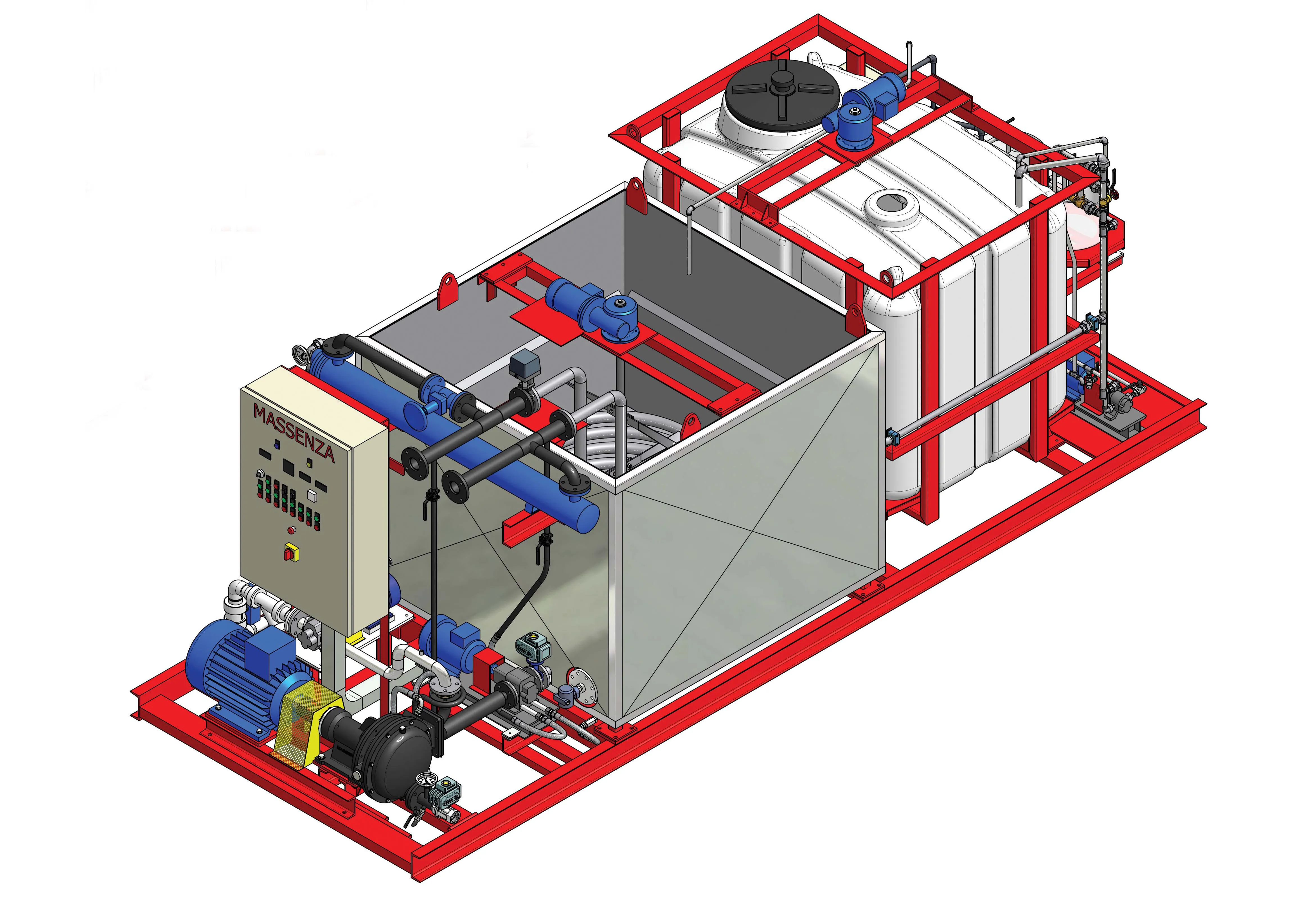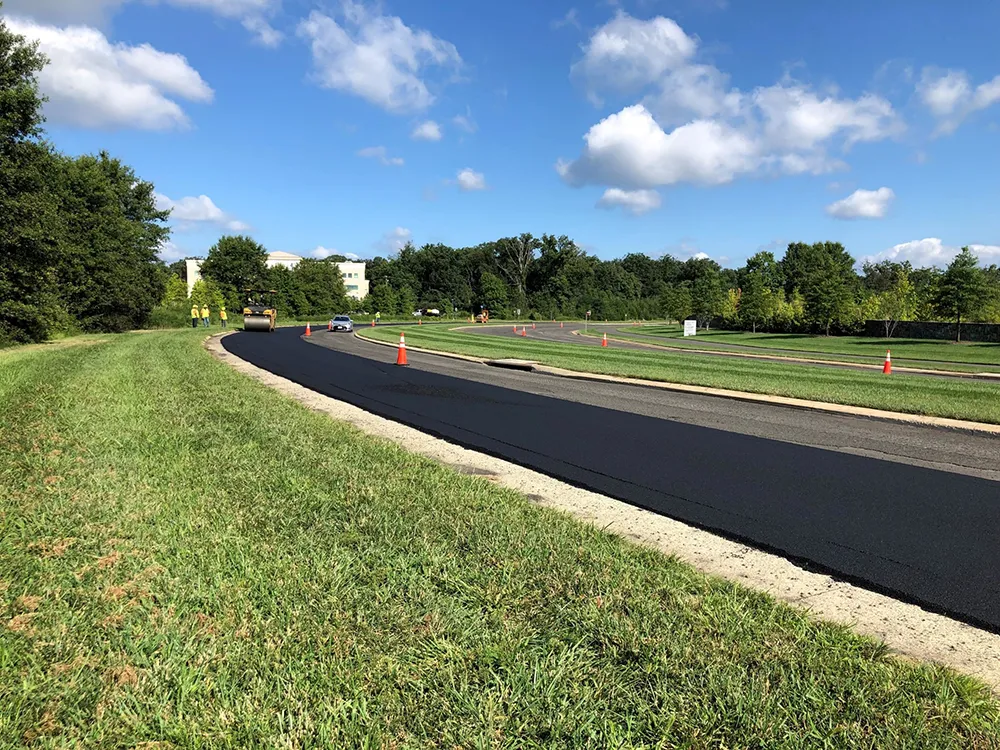Massenza has started 2014 with a new approach to its range of bitumen emulsion plants, streamlining its four larger models into two, and adding a smaller plant. This has allowed Massenza to optimise the design and components for each size of plant, which in turn allows the company to offer its customers a more competitive deal.
At the same time, Massenza has made three major technical improvements to the plants: a new type of material for the water tank which resists corrosion; a new dosing system for th
March 12, 2014
Read time: 5 mins

Massenza has started 2014 with a new approach to its range of bitumen emulsion plants, streamlining its four larger models into two, and adding a smaller plant. This has allowed Massenza to optimise the design and components for each size of plant, which in turn allows the company to offer its customers a more competitive deal.
At the same time,6805 Massenza has made three major technical improvements to the plants: a new type of material for the water tank which resists corrosion; a new dosing system for the additives which go into the water; and a new type of mechanical seal.
“Each of these plants is intended for a different type of customer,” explains Massenza director Diego Massenza. “The smallest one, EASY plant, is aimed for companies which need a small production output along with a limited investment. The medium-sized EVO plant will be bought by the majority of our customers. And the biggest, the MATIC is aimed at firms who produce bitumen emulsion and resell it to the end-user.”
The EASY plant, which Massenza launched last year, has a capacity of 1-3tonnes/h. The EVO, which Massenza expects to account for 60-70% of sales can produce 3-6tonnes/h, which can be boosted to 10tonnes/h by adding a buffer tank to pre-heat the water. The MATIC plant can produce between 10-15tonnes/h.
The EASY plant comes with a standard control panel. The ECO and MATIC models are operated by a PLC with a touch screen terminal so that the production cycle can be run in either semi-automatic or fully-automatic mode.
Diego Massenza is particularly proud of the new water tanks, for which the design and mould are patented. “I don’t believe that any of our competitors can offer this,” he says.
“In 95% of cases, customers are producing acid emulsion and the corrosion problem is always there. I showed this to one of my customers recently, and he said ‘Finally, we have a solution’.” The tanks are made out of a ‘special plastic compound’ which Massenza says is suitable for high temperatures and high acid concentration and is totally resistant to UV.
The new plant designs also see an automated system for adding the liquid chemical additives to the water. This improves safety as there is less risk of contact with acid and harmful fumes.
Previously the additive would be pumped from a drum into a vessel, with the operator watching the level in the vessel and turning off the pump manually before adding it to the water. Now the system is automatic once the operator has turned on the pump; a load cell system automatically stops it once the right amount has been added; then the same pump is used to deliver the additive to the water.
The final innovation for the Massenza plants is a new mechanical seal for the mill. “This helps prevent leakage from the mill, avoiding pollution and environmental issues,” says Massenza. “And it also means that the operational life is much longer and its maintenance and replacement is an easier operation too.”
New multi-million research programme targets sustainable road construction
Many companies boast the ‘sustainability’ of their products, but the question ‘Which solution is the most sustainable?’ is never easy to answer. Now a multi-million pound research programme managed by the Nottingham Transportation Engineering Centre (NTEC) at the4095 University of Nottingham in the UK aims to develop sustainability assessment tools which will help answer that question more easily.
“Until now any design for civil engineering infrastructure has been made based on the predicted performance and money,” said Dr Davide Lo Presti of NTEC, project manager for the Sustainable Pavement and Railway Initial Training Network (SUP&R ITN) programme. “Now we need to ensure that any design is first sustainable. That means that money is important, but as important are the environmental and social impacts.”
Backed by research institutions and industry, SUP&R ITN will provide training-through-research to 15 young researchers, looking at road pavement and railway technologies. The six projects related to road pavements will see PhD students tackle areas including pavement design for in-situ recycled materials, rubberised binder and asphalt mixes for wearing courses and half-warm mixes. The researchers will also benefit from a four-year training programme which will be international and multi-disciplinary.
“Each PhD will study a technology in collaboration with another university or research body and an industry partner,” said Lo Presti. Part of the work will be to create a Life Cycle Inventory for the particular product under development, information which will feed into the creation of sustainability assessment tools. Three post-Doctoral students will work on projects related to the tools. Private sector partners include5871 Eiffage Travaux Public, 4139 Network Rail, 294 Nynas, 2297 Aggregate Industries, AkzoNobel and Phonenix Industries. Some of the PhDs will be based within private companies.
The project started in October 2013, and is currently recruiting researchers. According to Lo Presti, the budgets available for the PhD and post-doctoral research are higher than average, which means that the project management team are looking to attract the very best people to work on them.
At the same time,
“Each of these plants is intended for a different type of customer,” explains Massenza director Diego Massenza. “The smallest one, EASY plant, is aimed for companies which need a small production output along with a limited investment. The medium-sized EVO plant will be bought by the majority of our customers. And the biggest, the MATIC is aimed at firms who produce bitumen emulsion and resell it to the end-user.”
The EASY plant, which Massenza launched last year, has a capacity of 1-3tonnes/h. The EVO, which Massenza expects to account for 60-70% of sales can produce 3-6tonnes/h, which can be boosted to 10tonnes/h by adding a buffer tank to pre-heat the water. The MATIC plant can produce between 10-15tonnes/h.
The EASY plant comes with a standard control panel. The ECO and MATIC models are operated by a PLC with a touch screen terminal so that the production cycle can be run in either semi-automatic or fully-automatic mode.
Diego Massenza is particularly proud of the new water tanks, for which the design and mould are patented. “I don’t believe that any of our competitors can offer this,” he says.
“In 95% of cases, customers are producing acid emulsion and the corrosion problem is always there. I showed this to one of my customers recently, and he said ‘Finally, we have a solution’.” The tanks are made out of a ‘special plastic compound’ which Massenza says is suitable for high temperatures and high acid concentration and is totally resistant to UV.
The new plant designs also see an automated system for adding the liquid chemical additives to the water. This improves safety as there is less risk of contact with acid and harmful fumes.
Previously the additive would be pumped from a drum into a vessel, with the operator watching the level in the vessel and turning off the pump manually before adding it to the water. Now the system is automatic once the operator has turned on the pump; a load cell system automatically stops it once the right amount has been added; then the same pump is used to deliver the additive to the water.
The final innovation for the Massenza plants is a new mechanical seal for the mill. “This helps prevent leakage from the mill, avoiding pollution and environmental issues,” says Massenza. “And it also means that the operational life is much longer and its maintenance and replacement is an easier operation too.”
New multi-million research programme targets sustainable road construction
Many companies boast the ‘sustainability’ of their products, but the question ‘Which solution is the most sustainable?’ is never easy to answer. Now a multi-million pound research programme managed by the Nottingham Transportation Engineering Centre (NTEC) at the
“Until now any design for civil engineering infrastructure has been made based on the predicted performance and money,” said Dr Davide Lo Presti of NTEC, project manager for the Sustainable Pavement and Railway Initial Training Network (SUP&R ITN) programme. “Now we need to ensure that any design is first sustainable. That means that money is important, but as important are the environmental and social impacts.”
Backed by research institutions and industry, SUP&R ITN will provide training-through-research to 15 young researchers, looking at road pavement and railway technologies. The six projects related to road pavements will see PhD students tackle areas including pavement design for in-situ recycled materials, rubberised binder and asphalt mixes for wearing courses and half-warm mixes. The researchers will also benefit from a four-year training programme which will be international and multi-disciplinary.
“Each PhD will study a technology in collaboration with another university or research body and an industry partner,” said Lo Presti. Part of the work will be to create a Life Cycle Inventory for the particular product under development, information which will feed into the creation of sustainability assessment tools. Three post-Doctoral students will work on projects related to the tools. Private sector partners include
The project started in October 2013, and is currently recruiting researchers. According to Lo Presti, the budgets available for the PhD and post-doctoral research are higher than average, which means that the project management team are looking to attract the very best people to work on them.








